Want to experience what life is like in an intentional community?
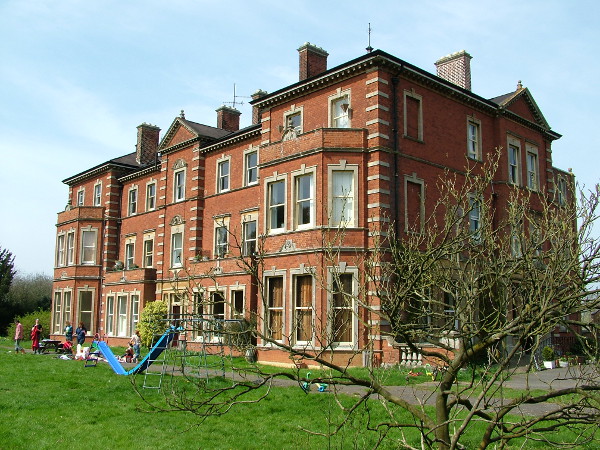
I joined Redfield Community in Buckinghamshire in 1996 and lived there for 13 years. It’s a Victorian mansion in 18 acres of woodland, fields, gardens and orchards – a registered housing co-op with around 15 adults and 8 kids on average, although people come and go. Having said that, it’s quite a stable community – there haven’t been many more than 100 members since it was founded in 1978. Redfield runs occasional ‘Living in Community’ weekends for people to come along and stay in the community, with discussion groups, tours, slide-shows and presentations about what it’s like to live at Redfield and other communities. More below, but first a bit more information about Redfield.
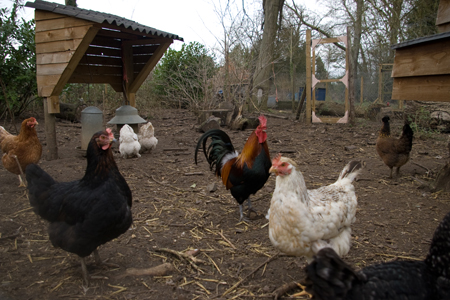
The place was purchased from the council for £70,000, with loan stock from the original members, which was slowly paid off from rental income and extending the mortgage. Now all members are landlords and tenants at the same time. Everyone pays a monthly rent to the co-op. Rents are kept low because members put in two days per week work – this could be in the gardens, working with the animals, splitting logs, maintaining the property, admin, cooking, cleaning etc. This means that members have paid work outside the community, but part-time.
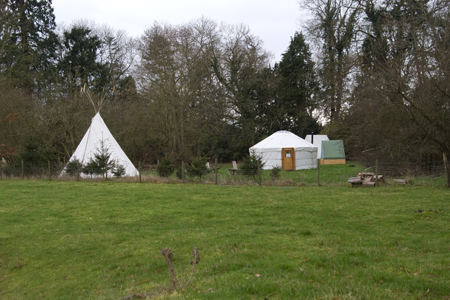
The founders set up an ‘asset-lock’, which means that if the property is ever sold, the proceeds have to go towards setting up another community, or else to existing housing co-ops, communities or umbrella organisations. This means that there will never be a financial incentive for members to sell the property, and it means that Redfield will continue to be a community in perpetuity, or its sale will boost the co-operative sector (by about £5 million, nowadays). The paying off of the loan stock also means that new members just start paying rent to the co-op – they don’t have to have any capital to join, and they don’t have to be ‘bought out’ when they leave. I have great admiration for Redfield’s founders, who locked in the co-operative aspect, didn’t look upon the purchase as a personal investment and allowed people to join with no capital.
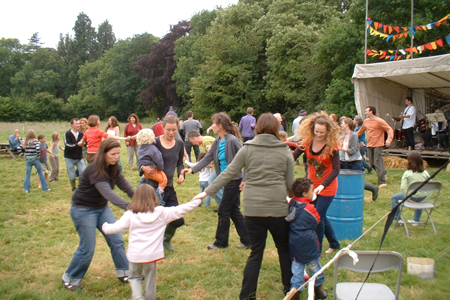
All decisions in the community are made by consensus at fortnightly meetings. When people ask (as they often do) ‘who’s in charge?’, the answer is ‘the meeting’ – i.e. everyone. Some people insist that there must be someone who is in charge in reality, but no, there isn’t – that’s how co-ops work. Plus there are always enough strong characters there who don’t want anyone to take charge. Control is embedded in the group, and consensus means that no-one can be out-voted and have to go along with something they really don’t want to happen. Everyone has a veto, but consensus is about talking until a compromise can be reached that everyone is happy with. In reality, in my experience, things just work themselves out. It’s incredible what can be achieved by talking, without anyone imposting their will via a hierarchical structure.
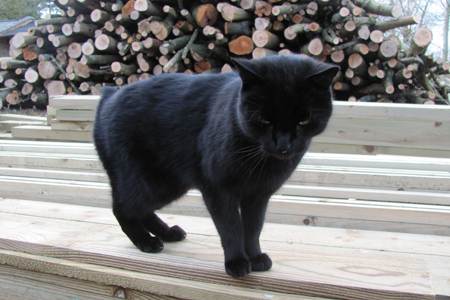
When I described to people what life was like in the community, I always said that it was like a large extended family. Not everyone has to be your best friend, but there’s trust and mutual support. There’s always company if you want it, but privacy if you don’t (the ground floor is communal and private rooms and units are on the first and second floors). It’s a great place to bring up kids, with other kids to play with, an 18-acre garden and lots of ‘uncles and aunties’ to interact and keep an eye on them. I think that this kind of life produces well-balanced, happy young adults. They seem to do quite well at school as well, in terms of mixing with other kids, and passing exams. One girl I met as a three-year-old when I joined, and lived with for 13 years, will soon be a doctor.
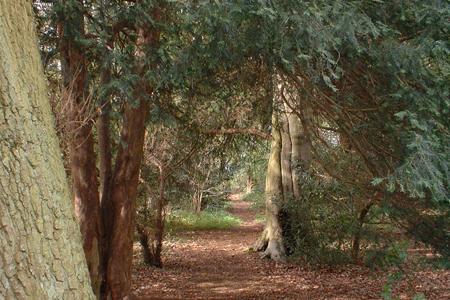
Evening meals are eaten together, and people sign up to cook. This means that you only have to cook about once a fortnight, but it takes all afternoon. After leaving the community, I tended to go a bit over the top when cooking a meal for two. I’ve worked out portions now though. A lot of the food is home-produced, and that includes meat (pork and lamb), eggs and honey (and more recently, fish) as well as fruit and veg. Vegans are welcome, but it wouldn’t really work for vegans who object to animals being kept at all, or to anyone else eating meat. Animals are all free-range of course, and pigs are kept in woodland, where their wild ancestors would have lived. Sometimes crayfish are pulled out of the local stream, too.
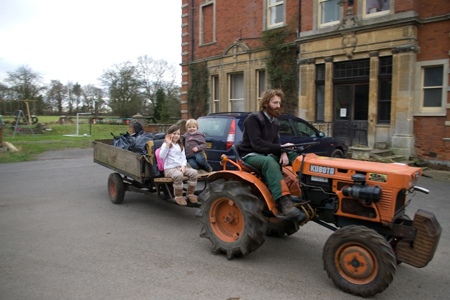
There is no common philosophy – another fact that baffles a lot of people. I think they have the wrong image of communites, maybe having a religious or political slant, and possibly with a ‘guru’; definitely not the case here. People come for different reasons – because they like living with other people, they believe in co-operative ownership and decision-making, to share resources, to learn skills, or maybe they just like the idea of living in a mansion with an 18-acre garden. I know I did – but it was also the environmental focus here that I liked too. The place is heated with a biomass boiler, roofs are covered in solar panels, lime is used instead of cement, the whole place is organic and there’s a lot of informal sharing and recycling going on.
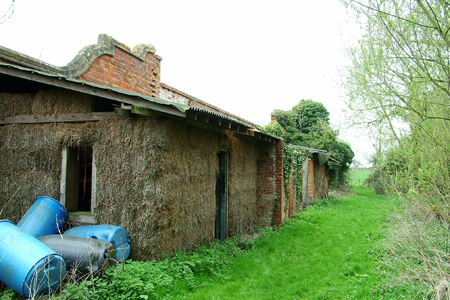
The community gets lots of visitors – mostly members’ friends and families, and WWOOFers, plus there are occasional visitor days and open days, and ‘Living in Community’ weekends have been happening for about 20 years, between one and three times per year, usually. It’s a way to find out for yourself what it might be like to live in a community. You won’t get the full picture from a weekend, of course, but you’ll definitely get a snapshot that could allow you decide whether to take it further or not.
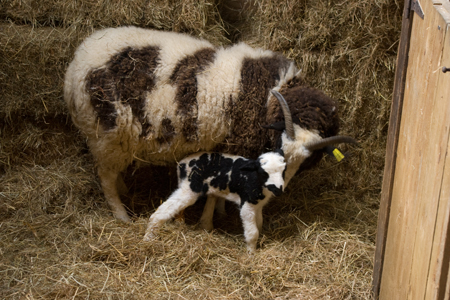
During the weekend, there will be a tour; two discussion groups – one about the legal and financial aspects of communities, and another about the social aspects; two presentations / slide-shows (followed by a chat) – one on UK communities, and the other as yet undecided (either international communities, or how communities can contribute to bringing about wider change); plus a work session that isn’t compulsory – you can join in splitting logs or working in the garden etc., or you can just hang out or catch up on sleep. You get to eat with the community and ask as many questions as you like.
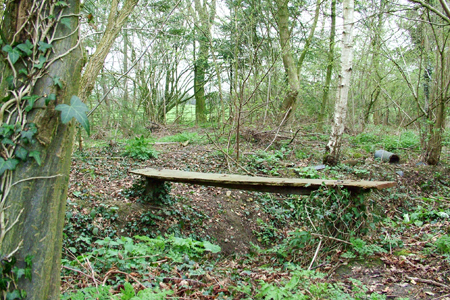
The next Living in Community weekend is Nov 13-15 (arrive Friday for dinner, leave Sunday afternoon), and there will be more next year. More details can be found on Redfield’s website here.
The views expressed in our blog are those of the author and not necessarily lowimpact.org's
13 Comments
-
1John Harrison September 14th, 2015
Thanks for an interesting insight into the community – there are obviously a lot of plus points but the article begs the question of why you left?
Interesting also to note that the average wage in 1978 adjusted to 2010 £’s was 14,627 so the property cost just 4.8 average wages whereas today it’s £5M or 227 times average wage.
-
2Dave Darby September 14th, 2015
Hi John. I left because Lowimpact took off so much that I couldn’t do the two days per week any more. Plus I met someone who’s job tied them to London – at least for the time being.
Yes, property prices. The founders also linked the loan stock to the retail price index rather than the house price index – really lucky, in 1978. If it had been tied to the house price index at that time it would have been difficult to pay back.
-
3John Harrison September 14th, 2015
I got my maths in a twist – should have calculated £70,000 / £3,269 the actual average wage rather than inflation adjusted which made the original purchase 21.4 times average income. Sorry. Same general point though.
Must have been a wrench leaving those idyllic surroundings for London –
You say a mix of adults & children and looking at the picture generally youngish adults – does it have any older people?
-
4Dave Darby September 14th, 2015
Yes, always had a smattering in sixties/seventies.
-
5Sophie Darby September 14th, 2015
I remember going to visit Uncle Dave at Red field as a kid and loved every moment of it. Taking goats for a walk round the woods, gooseberry picking and my brother attempting to ride the tail-less cat are special moments from my childhood. Being lucky enough to experience it and feel the energy is a blessing. Redfield strips living back to what it should be and makes you forget about every day struggles in the world we’ve been thrown into. I admire every member taking the step to find something better, not to just live, to thrive!
-
6Dave Darby September 14th, 2015
Ha! Hi Sophe. Still got hopes that you’ll get a membership application in. Great place to bring up a little ‘un.
-
7Paul Coffman September 14th, 2015
What an interesting account of what Redfield means today… And I’m an ‘original’!!! Paul (& Ry) Coffman, we were in the original planners and movers in 1978. It’s lovely to see the values are still real and applicable to everyday living. Our children (Berry,Jon,Dan,Charity and Ben) still remember and respect, with love and affection, the days they grew up there, and they know how hugely it has contributed to their lives.
Long may it continue……
-
8Dave Darby September 14th, 2015
Hi Paul,
I think it will continue for a long time, due in no small part to the way you and the other co-founders set it up.
Great work.
-
9Jenny Zobel September 15th, 2015
I was one of the founder members of Redfield in the seventies and am proud of it. My daughter was the first baby to be born at Redfield.
Best wishes to present and future members!
-
10Dani September 15th, 2015
Sam and I would have loved to have lived there but life brought us to an eco village in Australia. I have no doubt that us choosing an eco village here in Aus was in large part due to the amazing feeling we got from Redfield.
-
11Paul September 16th, 2015
What a great use for a big old house. In my neck of the woods in Australia, several old mansions are being demolished to make way for cookie-cutter townhouses. ?
-
12Suzanne Williams September 16th, 2015
Lovely write-up. I was there in the early 1980s and Sonia (daughter) was born there. Of course there were tensions and dramas as there are in any group of people – but the overall sense of collective goodwill to hold it together was a wonderful thing. One of the most challenging things was moving around in the house, leaving your own space, to make room for others. We lived through two of these – and it was extraordinary – maps and maps and maps of different combinations of people in different units – and in the end, the whole thing got worked out by consensus. The relinquishing of the sense of ownership over ones’s own space, and the recognition of the needs of others, was pretty amazing. So – yes – I look back on it with huge affection and gratitude, not rose-tinted but realistic, and recommend communal living to people all the time!
-
13tonytheartist December 15th, 2015
i am glad to see that it is still thriving i have been there a couple of times but it seems a long time ago – it was 30 years ago. i have been to art college and still there doing an MA. i am 61 now. i am sure it was a great value for me visiting lots of different groups in the mid 80’s but i wasnt involved in the right type of alternative group at the time and i didnt have any money. i am sure its impact is much greater than just being a community. i say just being a community but a lot of things nowadays esp. in towns dont work and people lead difficult lives. I am always impressed with any social experiment that works. best wishes tony




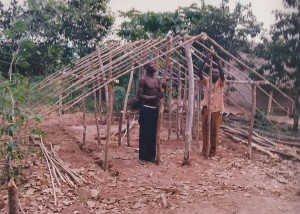 More details of the ujamaa collective village system in Tanzania (from first-hand experience)
More details of the ujamaa collective village system in Tanzania (from first-hand experience)
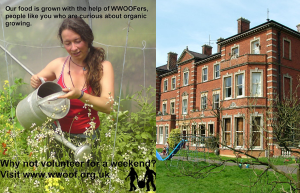 Goodbye to WWOOF and to Redfield Community: the dawn of a new era for Lowimpact.org
Goodbye to WWOOF and to Redfield Community: the dawn of a new era for Lowimpact.org
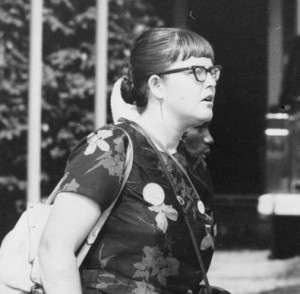 ‘The Tyranny of Structurelessness’: some thoughts
‘The Tyranny of Structurelessness’: some thoughts
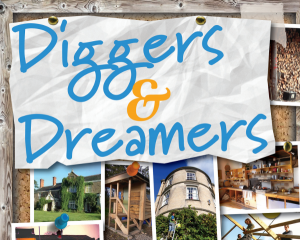 Diggers and Dreamers Communities Directory is back with a 25th anniversary edition
Diggers and Dreamers Communities Directory is back with a 25th anniversary edition
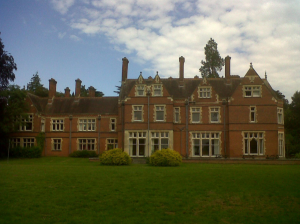 Would you like to be involved in the setting up of a new community and eco-centre in the English Midlands?
Would you like to be involved in the setting up of a new community and eco-centre in the English Midlands?
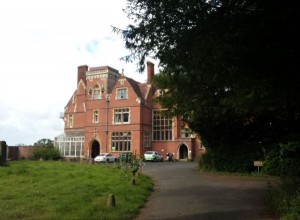 Latest news on proposed community / housing co-op / eco-centre in the Midlands
Latest news on proposed community / housing co-op / eco-centre in the Midlands
 Co-operatives
Co-operatives
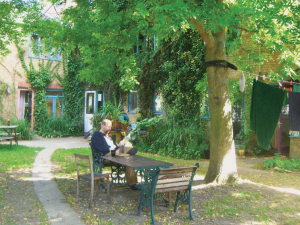 Housing co-operatives
Housing co-operatives
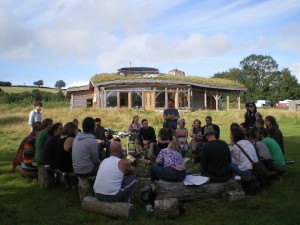 Intentional communities
Intentional communities


